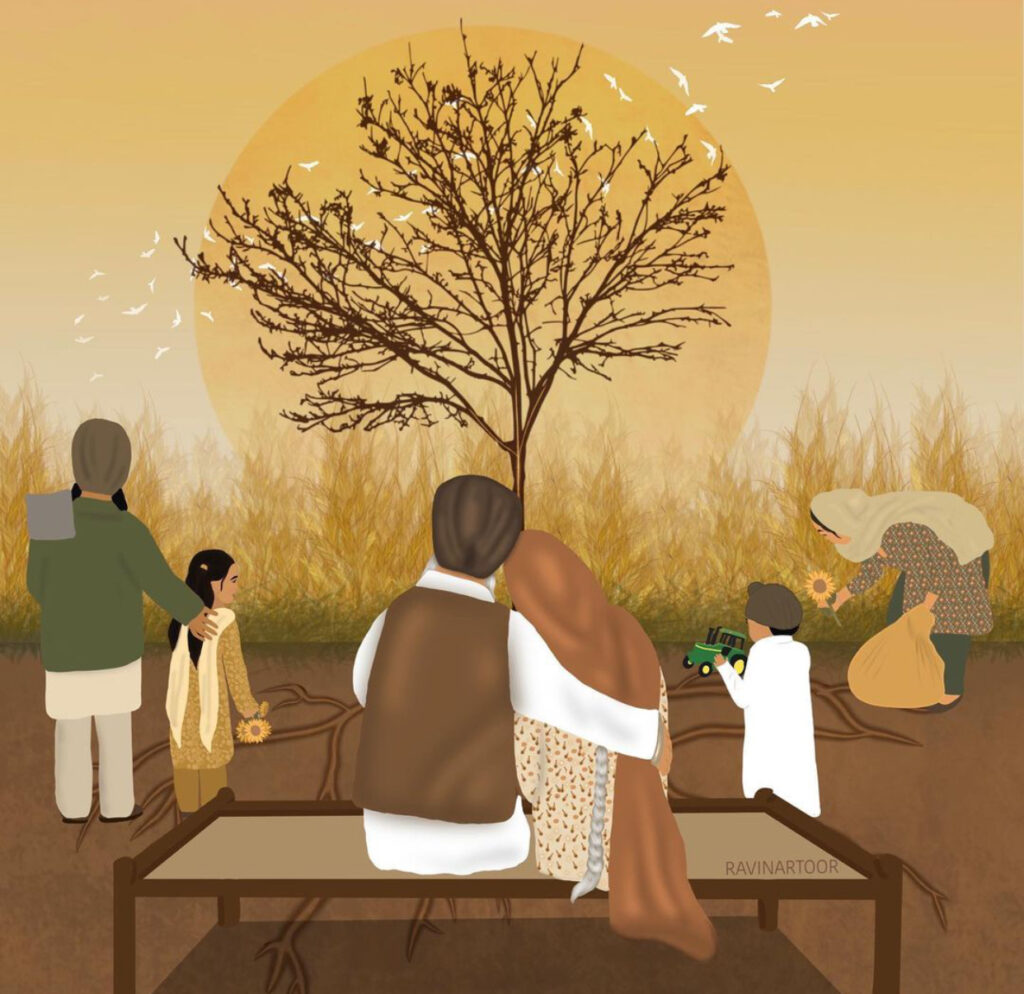
What does democracy mean to me? It means a collective movement.
India is facing democratic issues right this second. Punjab, India is referred to as “India’s breadbasket.” More than 60% of the population in India’s labor force and economy depends on agriculture for a living. On September 27, 2020, the Indian government signed three ordinances concerning farmers (The Farmers’ Produce Trade and Commerce Ordinance, The Farmers Agreement on Price Assurance and Farm Services Ordinance, The Essential Commodities Ordinance). The new farming and deregulations laws offer corporations to take advantage of farmers.
Before these bills, farmers sold crops at auction at their state’s Agricultural Produce Market Committee (APMC) with the promise of getting the Minimum Support Price (MSP). These government regulated markets were established in 1964 during the Green Revolution. Now, farmers have to sell directly to buyers and bypass the government to enter into contract farming. The new bills allow traders to stockpile goods and negotiate low prices.
Opal Tometi, the co-founder of Black Lives Matter wrote on Instagram, “Am I the only person who’s scratching their head wondering how there could be such silence around the fact that the people of India waged the largest strike in the history of the world?! Over 250 MILLION PEOPLE flexed their collective power in a courageous act of defiance against exploitation! I’m in awe of the people. And also disturbed that this news, which has global implications, was not given its due. A healthy media ecosystem is important for democracies worldwide.”
The march is called “Dilli Chalo” (“Let’s go to Delhi”) in which marchers are traveling from Punjab, Haryana, and Uttar Pradesh to Delhi. Since November 26, 2020, thousands of farmers from Punjabi have been marching to the capital of India to protect their livelihood. Other Punjabi communities have joined by marching such as in NYC and Oregon. “We are the daughters and sons of farmers. Modi’s bill was the last straw that broke the camel’s back. We are thankful to be able to protest in the comfort here (Oregon) as the fathers and mothers sacrifice their comfort in India in the middle of the cold weather and COVID. We must stand together for our Sikhi community and voice the injustice,” said a protester from the Sikh Youth of Oregon that occurred on December 5th.
The purpose of the march is to not let big corporations exploit farmers by bargaining power and decreasing earnings. The Indian Prime Minister, Narendra Modi, explained the laws would allow more freedom for farmers to sell directly to buyers and corporations. The MSP has protected farmers in the next crop cycles. The new bills can lead to unemployment and more debts. Many farmers have huge farm debts already that have led to high suicide rates. 86% of farmers are considered to be small farmers with 2 acres of land. The new regulations will cause farmers to sell their small land in order to clear debts.
Indian farmers want to be heard from the government. Yet, the protects have been answered back by riot police and paramilitary officers with tear gas and water cannons. The same workers that have been the backbone and the feeding hands of the country are being ignored. The “Mandi system” which is controlled by the government to regulate prices needs to remain or else private companies will take control of the farmer’s hard work. “If we can’t stand up for the ones who make food for us, we are dead as a society,” says Gauravdeep Singh, founder of Initiators of Change.
The farmers are still in Delhi for over 13 days doing a peaceful sit-in protest. Through collective support, the farmers have been given food, shelter, and other necessitates to continue their protest. As a Sikh, I feel proud to be in a community that stands together to protect a vulnerable group that feeds the world: farmers.
I urge you to take apart of this movement #KissanEktaZindabad [translates to Long Live, the United Farmers]


